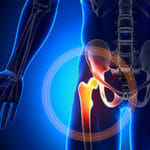At first glance, a simple tongue depressor may not appear to have much in common with a sophisticated X-ray machine. However, both are considered under the law to be medical devices and are subject to the regulation of the Food and Drug Administration (FDA).
To be classified as a medical device, the primary intended use of a product must be to affect the structure or any function of the human body, to diagnose a disease/condition or to cure, mitigate, treat or prevent a disease.
Examples include:
- Diagnostic devices such as ultrasound machines and CT scanners
- Therapeutic devices such as medical lasers
- Life support devices such as ventilators and dialysis machines
- Monitoring devices such as blood pressure cuffs.
If a product affects body structure or function through chemical action, then it is still regulated by the FDA, but it is considered to be drug rather than a medical device. Before a medical device can be sold to the public, it must be investigated and approved by the FDA.
Hip Device Implants
 In a hip replacement, diseased cartilage and bone in the ball and socket joint is substituted with other materials to improve mobility. Metal-on-metal implants are popular because the metal is highly durable and allows for a larger, more stable ball. However, it has been discovered that the rubbing of the metal ball with the metal socket can cause debris to break off and enter the patient’s tissues, bones or bloodstream. Patients can then develop metal poisoning, premature tissue death, bone dissolution or pseudotumors (fluid pockets) and require painful revision surgeries.
In a hip replacement, diseased cartilage and bone in the ball and socket joint is substituted with other materials to improve mobility. Metal-on-metal implants are popular because the metal is highly durable and allows for a larger, more stable ball. However, it has been discovered that the rubbing of the metal ball with the metal socket can cause debris to break off and enter the patient’s tissues, bones or bloodstream. Patients can then develop metal poisoning, premature tissue death, bone dissolution or pseudotumors (fluid pockets) and require painful revision surgeries.
These side effects were experienced by patients who had been implanted with a pair of devices — the Rejuvenate and ABG II modular-neck hip stems — made by Stryker Corporation, which were voluntarily recalled in 2012. At the time of the recall, thousands of patients had already received the defective implants and many filed lawsuits. In 2014, Stryker decided to offer a $1.43 billion settlement before any lawsuits actually made it to trial. This agreement does not cover any patients who have revision surgery after November 3, 2014, and more victims will undoubtedly surface. In order to settle additional claims, Stryker may need to make additional settlement arrangements or face trials.
If you were injured by a Stryker hip device, there is no guarantee that you will receive compensation. But it is a good idea to contact a qualified hip device attorney to help you understand your options.
Recalled Medical Devices
Unfortunately, countless medical devices that were expected to help people have turned out to be hazardous for reasons such as poor design, inadequate testing, defective components, software malfunctions or a misrepresentation of side effects.
Some are so dangerous, they are recalled by the FDA, which means they have their defect corrected if possible or are removed from the market. A report issued by the FDA in March revealed that recalls of defective medical devices nearly doubled in the decade from 2003 through 2012, rising from 604 to 1,190. Furthermore, there was a sharp increase in recalls where the defective product carried a reasonable probability of death, rising from 7 to 57.
Medical Device Litigation & Class Actions
Recent recall categories include hip implants, knee replacements, shoulder pain pumps and transvaginal mesh.
Claims involving defective medical devices are highly complex and can involve a number of parties, including the hospital, distributor, or seller that provided the device; the doctor that prescribed the device; and, most commonly, the manufacturer of the device. The Mann Law Firm has the experience, resources, and network of investigators to successfully pursue claims against all responsible parties in medical malpractice lawsuit cases.
Our attorneys represent victims of medical device injury and the survivors of those who have been killed by an unsafe medical device. In addition to cases handled in Macon, we are prepared to handle negligence claims on behalf of clients in Dublin, Warner Robins or Milledgeville and other Georgia communities. We would like to meet with you to discuss your case. Please call us at (478) 742-3381 or use this convenient online contact form.

Georgia’s Comparative Negligence Rule: What Motorcyclists Need to Know
Motorcycle riding is an exhilarating way to travel and enjoy the open road. However, with the freedom and excitement of riding a motorcycle comes an increased risk of accidents. If you are involved in a motorcycle accident in Georgia, it’s crucial to understand how the state’s laws may affect your case, especially the comparative negligence rul......



 Before leading his own firm, Mann served for several years as in-house defense counsel for a large insurance company, which gives him unique insight into how insurance companies work. He uses this critical knowledge as an advantage for his clients. He is a tough negotiator and litigator, and he is exceptionally strategic in building cases on behalf of personal injury victims.[
Before leading his own firm, Mann served for several years as in-house defense counsel for a large insurance company, which gives him unique insight into how insurance companies work. He uses this critical knowledge as an advantage for his clients. He is a tough negotiator and litigator, and he is exceptionally strategic in building cases on behalf of personal injury victims.[ 




